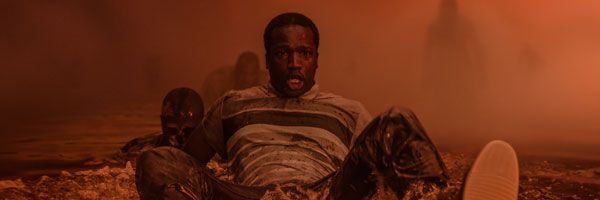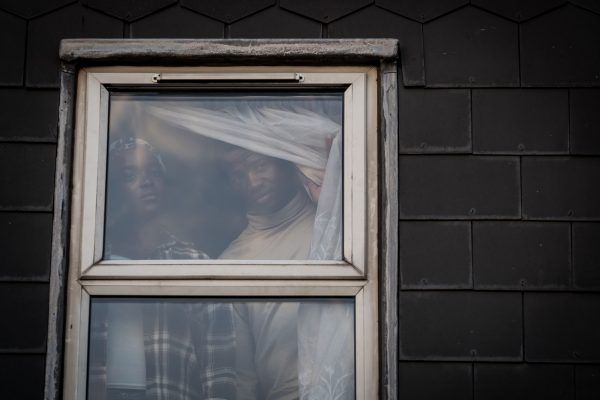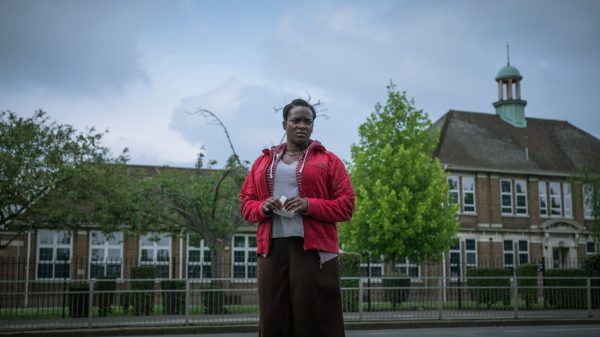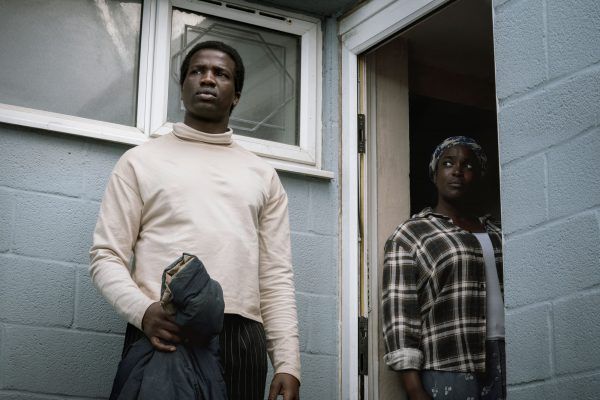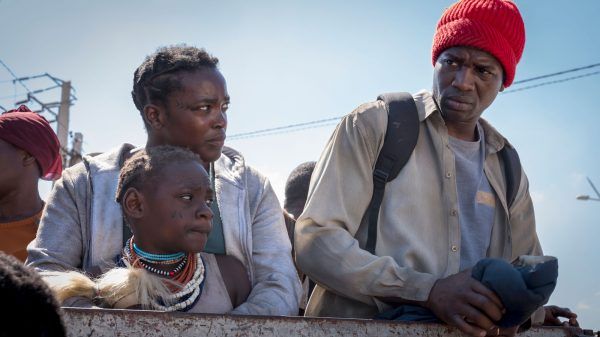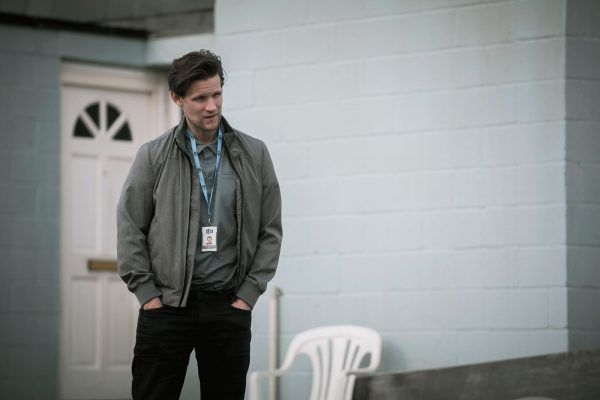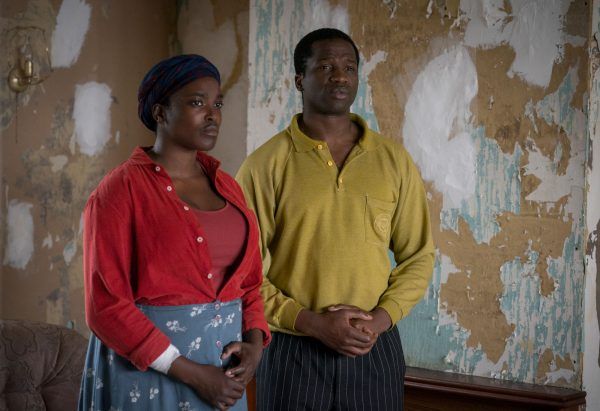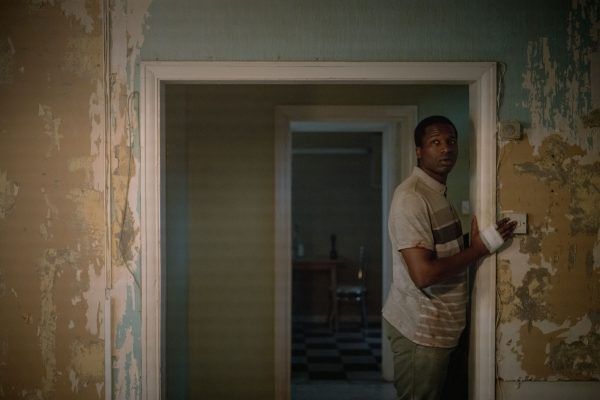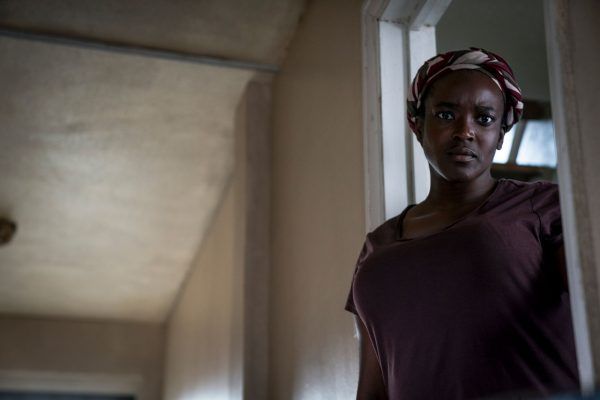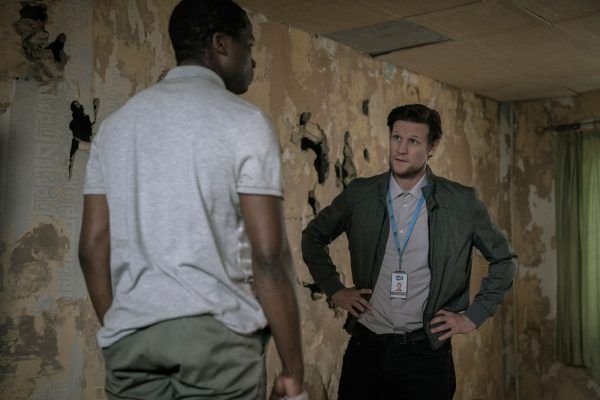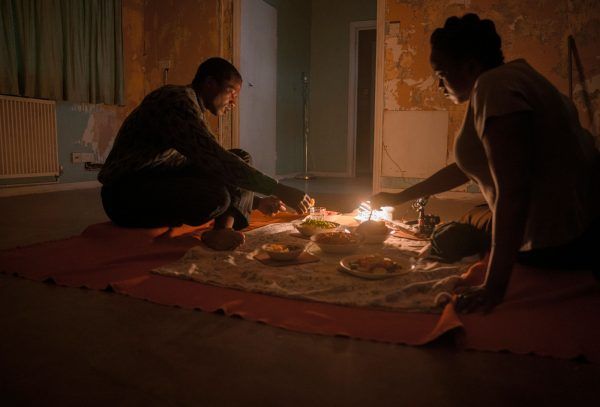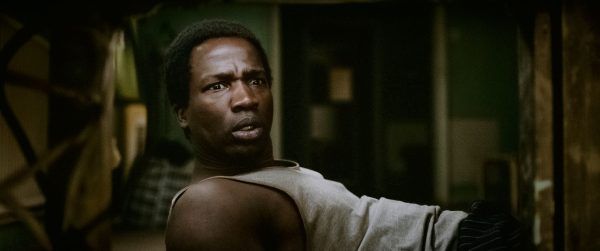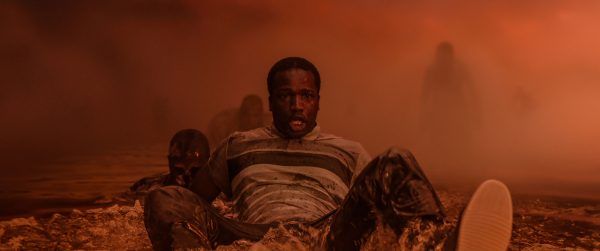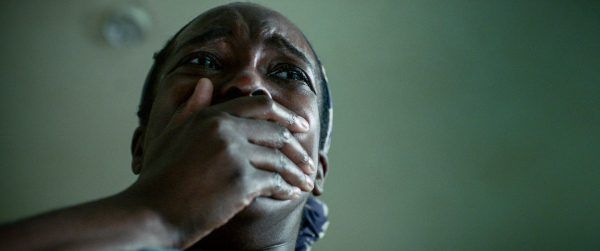It’s a good day when you find out that the official release of one of your favorite Sundance Film Festival movies is right around the corner! It’s an honor to be able to officially break this news - Remi Weekes’ feature directorial debut, His House, is scheduled to hit Netflix globally on October 30, 2020.
The film features two stellar performances from Wunmi Mosaku and Sope Dirisu as a young couple who manage to escape war-torn South Sudan. After completing the harrowing journey to the UK, they’re placed in a detention center before finally getting a home of their own, a rundown council house surrounded by unwelcoming neighbors. Making matters worse, they soon come to realize that there’s something sinister lurking in their new home, but thanks to their legal status and this mentality that they should be grateful for whatever they're given, the “why don’t they just leave” haunted house trope can’t apply here.
It’s an especially ambitious first feature that continues to prove that the horror genre can be an extremely powerful way to explore some of the most devastating problems of our reality. I had the pleasure of sitting down with Weekes, Mosaku and Dirisu at Sundance back in January, and Weekes detailed the very personal starting point for the concept:
“I think it began growing up in London and coming from an ethnically diverse background and the experiences of being a black person in a country where you’re never always feeling like you’re wanted, and how that feels for an immigrant moving to the country and trying to find their way, their future in this place.”
Weekes couldn’t have found two better leads to bring that experience to screen here. Mosaku and Dirisu’s characters find themselves caught in quite the web of devastating circumstances and you feel the weight of it all courtesy of the intensity, emotion and nuance of their work. If you spend much time on Collider, you’ve probably heard me sing Mosaku’s praises at some point, and back at Sundance, Dirisu himself was eager to do the same:
“When I found out that I might be working with Wunmi, I was so proud because Wunmi’s reputation precedes her, for sure. It does. She’s one of the most respected actresses in the UK, if not the world very soon. So for me it was like, I get to work with Wunmi? And all of my friends were like, ‘You get to work with Wunmi? Oh my god!’ [Turns to Mosaku] So seriously, this is true. I’m not just gassing you. Getting to chem read with her, it made me feel like I had arrived somewhere that I get to be working with someone of her caliber.”
While Mosaku does deserve every ounce of that praise and then some, do know that Dirisu had his work cut out for him with this one and deftly manages to capture the influence of the past and how desperately his character wants to forge forward into this supposedly better future.
If you’d like to hear more about His House as we wait for the film’s October 30th Netflix global debut, you can check out our full Sundance Film Festival chat right here. And if you’d like to join me and Dirisu in the Wunmi Mosaku fan club, you can learn more about her journey in her episode of Collider Ladies Night right here. We also have some never before seen images from His House and the official director’s statement from Weekes for you below:
His House is a haunted house story about two immigrants trying to make a home in a foreign country. Unlike traditional haunted house stories where the protagonist might be able to escape, our protagonists – two displaced asylum seekers – do not have the privilege to simply leave. Rather, they are stuck having to survive within their house. This is often the case in the UK, where asylum seekers have to follow draconian rules when given accommodation. This is also often the case with trauma – you’re stuck having to find ways to survive your grief, and finding ways to heal within it.
Growing up in the UK, I have always been aware of the anxieties immigrants and minorities generate. As is written in Nikesh Shukla’s book ‘Good Immigrant’, The narratives of immigrants are often flattened, fitting neatly in either victim or villain roles. Ethnic minorities often have to perform as the ‘Good Immigrant’ to survive. Making this film I wanted to step away from these social commentaries and move into a space more psychological, emotional and personal.
Coming from a mixed background and surrounded by first-, second- and third-generation immigrants, the feeling of being unmoored, of not knowing your place in a country that often considers you – at best – a guest, or – at worst – an invader, is a familiar feeling. Seeing the dominant class spar with the narrative as if fighters in a ring made me disinterested with telling the story from any other perspective but the perspectives of the two immigrant protagonists. I wanted the focus of the film to be introspective, about them, rather than any larger commentary. The conversations within the film are the conversations that I grew up hearing, as had by my family, my friends and the people that moved in and out of my life. Being a minority in the UK, often, you tend to be torn between two places. There is one part of you that wants to assimilate and fit in and disappear. And there is also the other side of you that wants to rebel and reject the orthodoxy, to seek belonging closer to your roots. These two sides are often at war, and this battle is at the heart of the film.
I’ve always enjoyed the spectacle of cinema. The magician’s trick of throwing us into an unfamiliar world, forcing us to empathise with strangers, creating moments that unhinge reality and open up new possibilities and ideas. I’ve been enthralled by the power of cinema all my life. I’ve always wanted to do the same thing, believing that I could take the great cinematic traditions that I grew up loving, but remix them to fill them with humans that I knew. I feel the cinema I want to make is cinema that shares in its DNA the audaciousness of Hollywood and the introspection and humanity of the communities I share my world with.

